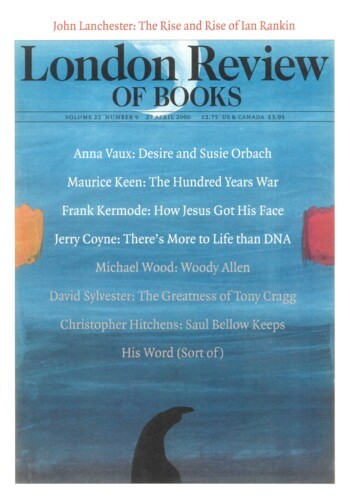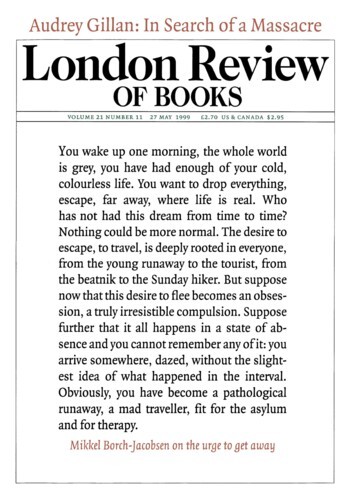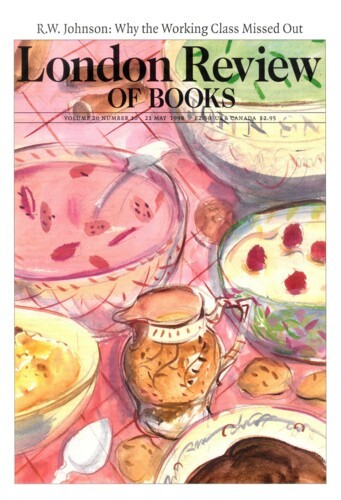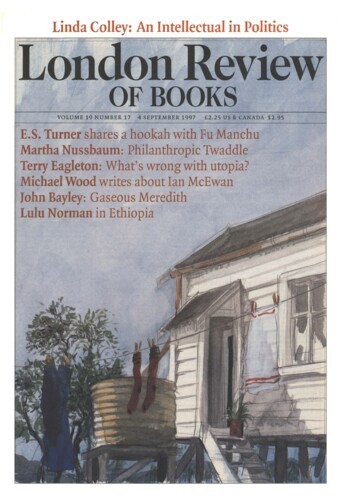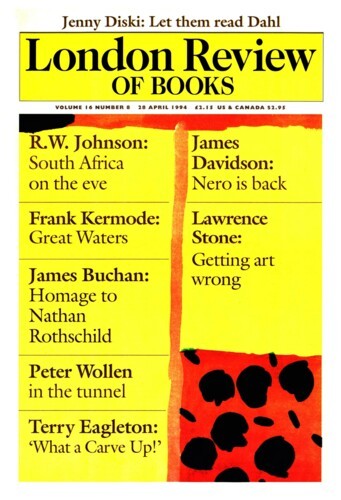Cooking the Books: Desire and Susie Orbach
Anna Vaux, 27 April 2000
In 1978, Susie Orbach wrote a slim, successful book with a catchy title – so catchy you didn’t need to read the book to feel you knew what it was all about. Fat Is a Feminist Issue. The title said so much. Perhaps the title said it all. Certainly it sold a lot of copies, and went on to have a happy life of its own as a quotation and a slogan. So perhaps Orbach has similar hopes for The Impossibility of Sex. It doesn’t have the alliterative force of Fat … but it does have the selling power of sex: a combination, moreover, of sex and mystery – for what can she mean by ‘impossible’? Impossible for whom? Impossible how? And what are we to make of the peekaboo cover, with a square cut-out of the crop-haired back view of – who? Ooh! Which of us doesn’t want to look inside to see if we, too, suffer from the impossibility of sex, whatever it is?’‘
